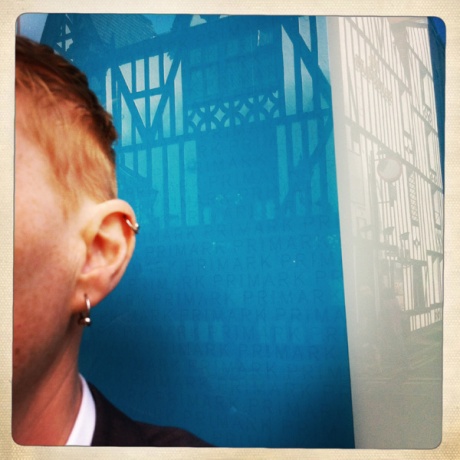The Bed exhibition brings a group of artists from the North West, Yorkshire and internationally, who each respond individually to the exhibition’s title Bed.
The events programme for Bed includes: An Interactions Discussion FREE
Weds 26 Nov: 7 – 8.30pm
An open conversation about socially engaged performance practice taking Spanton’s work (Slices / Seams) in Bed as a starting point, led by Interactions artists Sarah Spanton, Dani Abulhawa and academic and researcher Sarah Amsler (see below for more info about Sarah Amsler).
Got to http://www.waymarking.org.uk/current_5.php – for more info about Slices / Seams.
Bed takes place at:
At Federation House : Balloon Street : Manchester : M4 2AH
- exhibition : performances : project fold launch : talks : seminars
Preview: Fri. 21st Nov. 6pm – 9pm
Exhibition Opening Times
Sat 22 Nov & Sun 23 Nov, Wed 26, Thurs 27, Fri 28, Sat 29 Nov
12 noon – 6.00pm
Artists are: Bertha Husband : Alan Richardson : Stevie Cohen : Colin Lloyd : Simon Ford : Jacques Rangasamy : Mary-Jo Marchnight : Alan Marks : Lyndall Stein : Sarah Spanton : Ian Taylor : Ian Colverson : Phil Moody
Twitter @foldevents
Blog http://foldevents.wordpress.com/
Sarah Amsler is a Reader in the Centre for Educational Research and Development at Lincoln University. Her research focuses on the politics of culture, particularly the role that knowledge and cultural practices – particularly in education – play in what Pierre Bourdieu called the ‘social conditions of possibility’ in everyday life. http://staff.lincoln.ac.uk/samsler
She is interested in three questions. First, how does the political and economic organisation of cultural work, particularly in education and art, impact upon the nature and possibility of transformative social action? Second, how do cultural practices work to open democratic and emancipatory political forms and possibilities, and to close them down? Most importantly, what roles do different forms of education play in these processes? She has studied these questions in different contexts, including the role of public history and museums in the United States, the politics of social science in post-socialist Central Asia, and most recently problems of formal and informal education in the UK and globally.
Theoretically, this question weaves its way through debates around utopian epistemologies in critical theory, philosophies of ‘crisis thinking’, prefigurative politics, affective theories of critique and transformation, and various articulations of the relationship between aesthetics, politics and pedagogies.
Image Credit: Sarah Spanton

